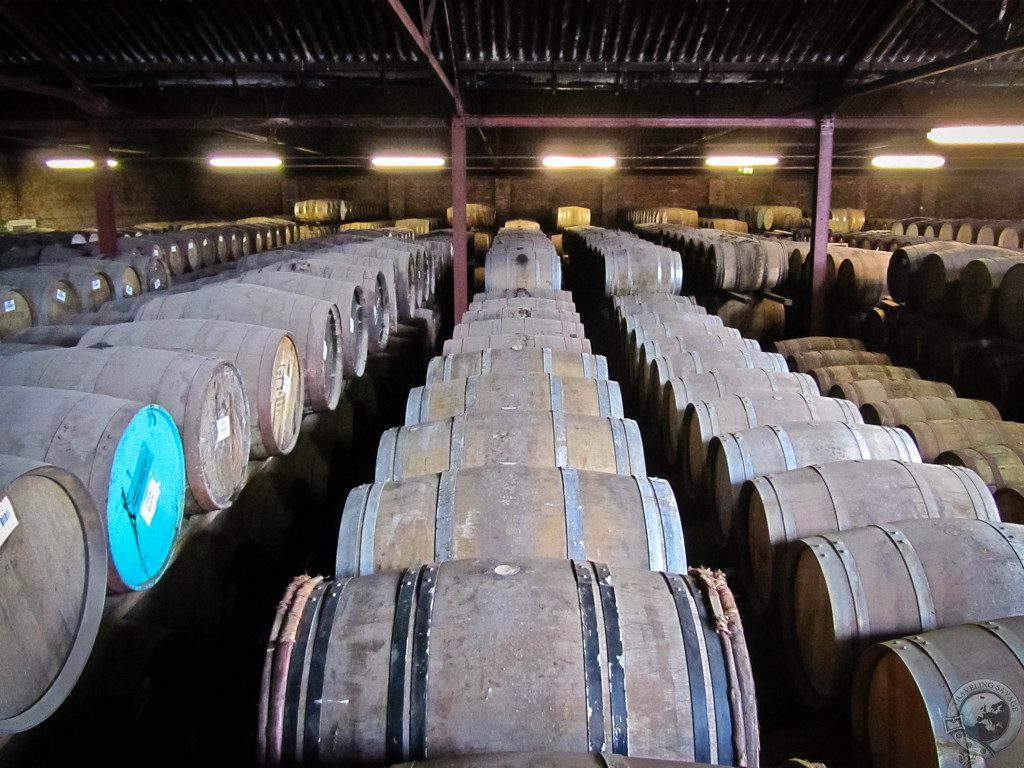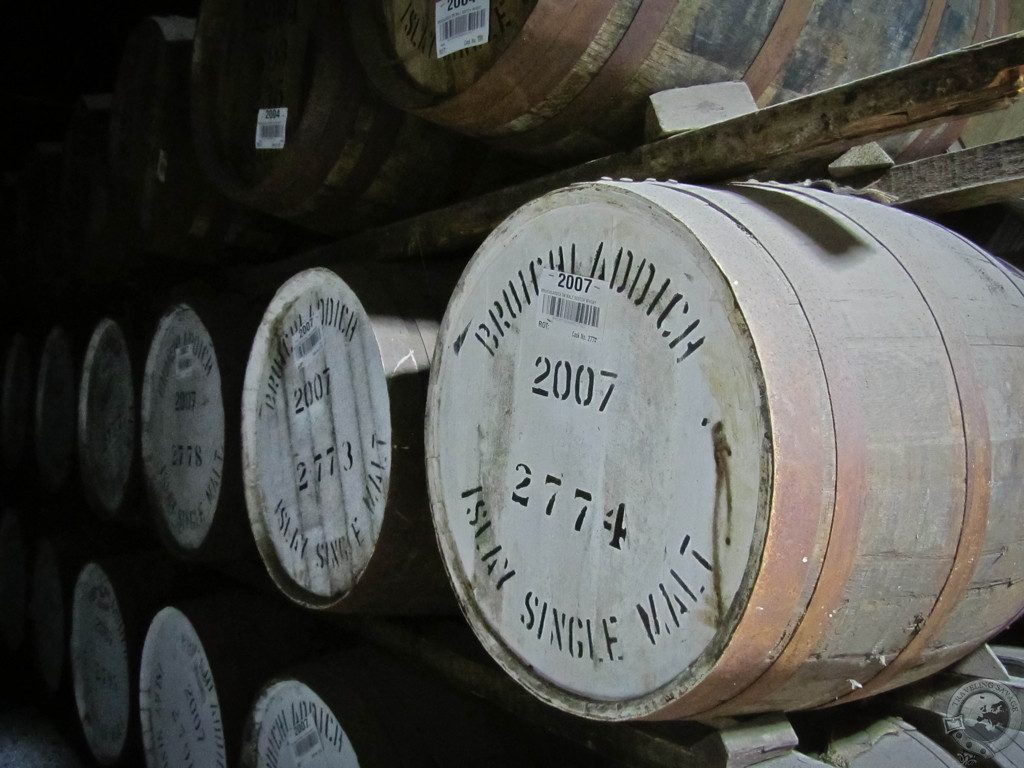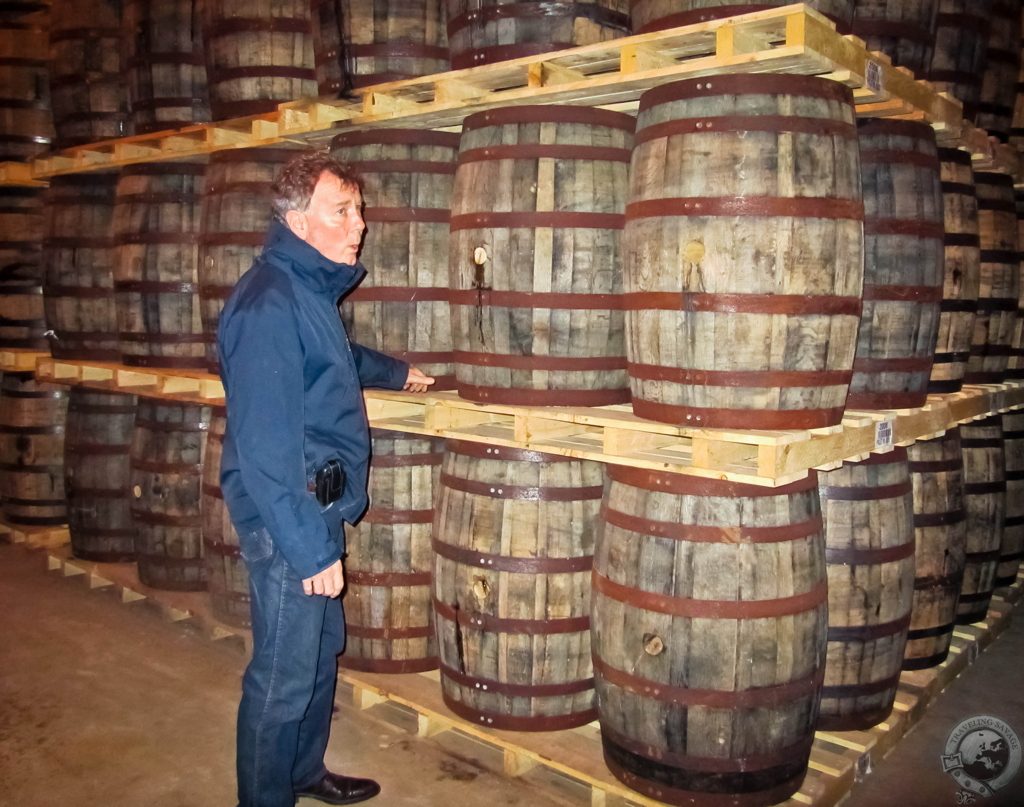Bruichladdich, Islay, Scotland | September 6, 2011
The Rhinns of Islay cup the western edge of surly Loch Indaal and hunker down like sheep behind a mound as Hurricane Irene’s death rattle shrieks from across the Atlantic. Horizontal, straight-line rain batters the white-washed village of Bruichladdich, arriving between intermittent torrents of wind and sun. Centered on its only road, the distillery dominates the town, built of stone off the sea shore and cradling a massive courtyard like a castle, some vision from a dark-age king. Inside the visitor’s center with its low ceiling and cozy gloom, the door to the rain opens and a rail of a man, not dissimilar to the island’s wizened and weathered standing stones, enters the shop.
He extends a hand and leads me into the storm. He is Jim McEwan, a kind of second father to Bruichladdich since it was reborn in 2001 and the wizard of its black arts. We sprint among buildings familiar with such meteorological hysterics. Mill room, mash house, still house, bottling plant, warehouse, and others loaded with Victorian equipment flash by as the steam and smoke and heat billow skyward toward invisibility. Rain lashes across his face, and he deadpans that they bottle sunshine here so the weather makes no difference. There are eight distilleries on the island and only seven days; by his math, that makes it always sunny on Islay.
A special warehouse rests just above the distillery on a slight hillside. This Aladdin’s cave is a massive hangar sheltering casks of all sizes and from many distilleries. Dark Oloroso Sherry butts shoulder up next to Calvados casks fragrant with apples, dwarfish quarter casks squat next to light Château Margaux barrels, massive stained Port pipes loom over rows of crisp American oak Bourbon barrels. Familiar names appear stenciled on the lids: Highland Park, Springbank, Mortlach, Jura, and, of course, Bruichladdich everywhere. This is Jim’s family room and these are his inherited and adopted children.

Jim runs his hand over the dusty wood and rusty bands of the sea of barrels. This place is his tether to the past, the realm where he found his lore. Today he is the last cooper on Islay. Though he has sweat through every job in the industry, his heart is a cooper’s heart, made of wood and bound to his children in this warehouse. He speaks softly in the gloom about the need to spend time with your kids, talk to them, watch over them. You must love what you do. Perfect sense pushes through the perfumed air.
He starts unbunging casks and withdrawing ancient and rare drams with a valinch. He dips his finger into my glass before handing it to me and tastes the sun. His head hangs, and he makes a contented sound: it’s a vision of apotheosis as the descriptors roll off his tongue. How often must he do this and still find such love? I swirl the whisky in my glass and nose the Jura from 1976. A taste. There is a library limned in shattering sunlight, pearls of honey and toffee glistening, and a waft of damp smoke beneath the eaves of a thatched roof.
For all the world I swear light poured forth from that cask into the gloom of Aladdin’s cave, and we didn’t bat an eye as Irene died outside.



Wow! A 1976 Jura? How was that? Does Bruichladdich warehouse other distillers’ whisky in addition to their own. Sounds like a dram would be just bright with that kind of weather.
The Jura was unlike any whisky I’ve ever had before. Truly incredible with unexpected but welcome flavors developing through its long life. No, I don’t believe Bruichladdich houses other distiller’s whisky since they are independent.